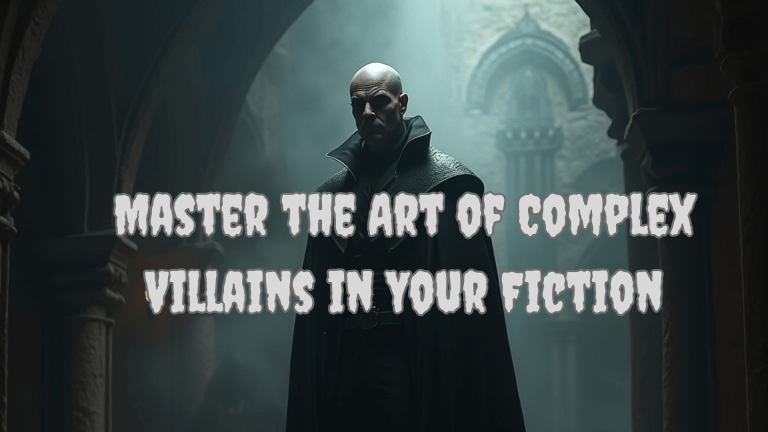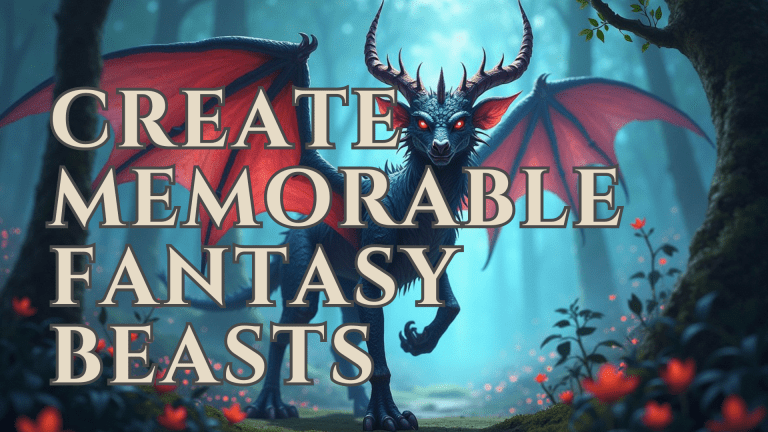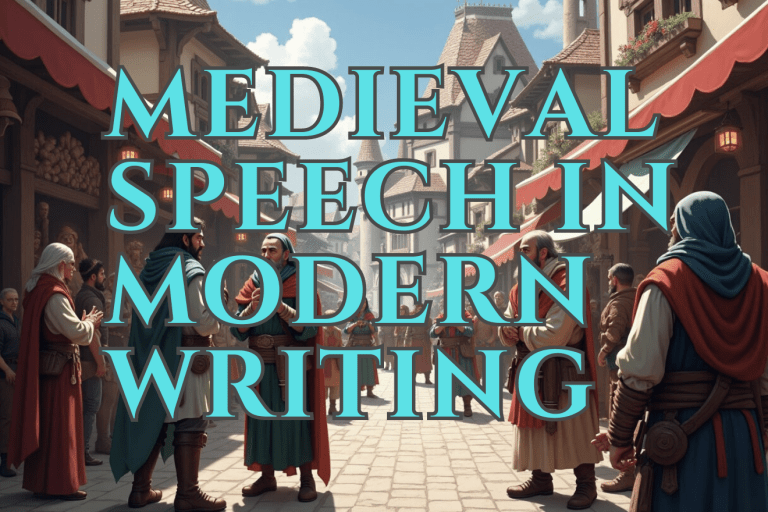Character Development Worksheet: 50 Questions to Bring Your Protagonists to Life (2024)
Have you ever found yourself staring at a blank page, struggling to breathe life into your characters? You’re not alone! As Stephen King once said, “The most important things to remember about backstory are that (a) everyone has a history and (b) most of it isn’t very interesting.” But fear not, fellow writers! Our character development worksheet is here to rescue you from the depths of writer’s block. In this article, we’ll explore 50 questions that will transform your flat, two-dimensional characters into living, breathing protagonists that leap off the page. Get ready to embark on a journey of creative discovery – your readers won’t know what hit them!
Why Character Development Worksheets Are Essential for Writers
Characters are the heart and soul of any story. Without well-developed characters, even the most intriguing plot can fall flat. That’s where character development worksheets come in. By asking the right questions, you can delve deeper into your characters’ psyches, ensuring they are as complex and nuanced as real people.
- The Role of Well-Developed Characters in Storytelling: Compelling characters drive the narrative forward, making readers care about the journey they embark on. Without strong characters, a story lacks emotional depth and connection.
- How Character Development Worksheets Can Streamline the Writing Process: A structured approach to character creation helps avoid inconsistencies and ensures that your characters’ actions and decisions feel authentic and true to their personalities.
- Benefits of Using a Structured Approach to Character Creation: Worksheets help organize your thoughts, making it easier to track your characters’ growth and evolution throughout the story.
- Real-Life Examples of Famous Authors Who Use Character Worksheets: Authors like J.K. Rowling and George R.R. Martin have famously relied on character outlines and worksheets to flesh out their complex characters and sprawling casts.
Understanding the Core Elements of Character Development
Character development goes beyond just creating a name and appearance. It’s about understanding the full scope of what makes your characters tick.
- Physical Attributes: More Than Just Eye Color and Height: While physical traits are important, they should be used to reflect a character’s inner world. A scar, a distinctive style of dress, or even a particular posture can reveal much about who they are.
- Psychological Traits: Delving Into the Character’s Mind: Understanding your character’s mental and emotional landscape is crucial. What are their fears, desires, and internal conflicts? How do they perceive the world around them?
- Sociological Factors: How Environment Shapes Your Character: A character’s background, culture, and environment play a significant role in shaping their beliefs and actions. Consider how their upbringing influences their decisions and relationships.
- Character Arc: Planning for Growth and Change: Characters should evolve over the course of the story. Whether it’s a hero’s journey of transformation or a gradual shift in perspective, a well-planned character arc adds depth to your narrative.
50 Questions to Bring Your Protagonists to Life
Ready to dive into the nitty-gritty of character creation? Here are 50 essential questions to get you started:
- Basic Information (Questions 1-10): What is your character’s name? How old are they? Where do they live? These foundational details set the stage for more complex development.
- Appearance and Physical Traits (Questions 11-20): What do they look like? Do they have any distinctive features? How do they carry themselves? Physical traits can offer clues to their personality and background.
- Personality and Psychology (Questions 21-30): What are their core beliefs and values? What motivates them? How do they react under pressure? These questions delve into your character’s mental and emotional state.
- Background and History (Questions 31-40): What is their backstory? What significant events have shaped who they are today? Understanding your character’s past helps explain their present behavior.
- Goals, Motivations, and Conflicts (Questions 41-50): What does your character want most? What stands in their way? How do they plan to overcome these obstacles? These questions are crucial for driving the plot forward.
Want to learn more about crafting unforgettable characters? Explore additional tips and tools on BookMatchClub’s homepage.
How to Use the Character Development Worksheet Effectively
A worksheet is only as useful as the effort you put into it. Here’s how to make the most of it:
- Tips for Answering the Questions In-Depth: Take your time with each question. Don’t settle for superficial answers. Dig deep and explore the nuances of your character’s personality and history.
- Incorporating the Worksheet Into Your Writing Routine: Make character development a regular part of your writing process. Refer back to your worksheet often to ensure your characters remain consistent throughout your story.
- Using the Worksheet for Multiple Characters in Your Story: Don’t limit yourself to just your protagonist. Use the worksheet for your supporting cast as well to ensure every character in your story is fully fleshed out.
- Adapting the Worksheet for Different Genres and Writing Styles: Whether you’re writing fantasy, romance, or thriller, this worksheet can be adapted to suit your needs. Tailor the questions to fit the genre and tone of your story.
Advanced Techniques for Character Development
Ready to take your character development to the next level? Try these advanced techniques:
- Creating Character Mood Boards and Visual Aids: Visual representations can help you better understand your characters. Use mood boards to gather images, colors, and textures that represent your character’s personality and world.
- Writing Character Monologues and Diary Entries: Give your character a voice by writing monologues or diary entries. This can help you explore their inner thoughts and emotions more deeply.
- Conducting Character Interviews and Role-Playing Exercises: Interview your character as if they were a real person. Ask them about their goals, fears, and dreams. Role-playing can also help you get into your character’s mindset.
- Using Myers-Briggs Personality Types for Added Depth: The Myers-Briggs Type Indicator (MBTI) can be a useful tool for developing well-rounded characters. Determine your character’s personality type and explore how it influences their behavior and decisions.
Common Pitfalls to Avoid in Character Development
As you develop your characters, beware of these common mistakes:
- Overreliance on Stereotypes and Clichés: Avoid falling back on tired stereotypes or clichés. Strive for originality and depth in your character creation.
- Information Dumping in Your Narrative: Be careful not to overwhelm your readers with too much backstory at once. Reveal your character’s history and traits gradually throughout the story.
- Creating Mary Sue or Gary Stu Characters: Perfect characters with no flaws or weaknesses can be boring and unrelatable. Make sure your characters have vulnerabilities and challenges to overcome.
- Neglecting Secondary Characters: Don’t forget about your supporting cast. Well-developed secondary characters can enrich your story and provide additional layers of depth.
Congratulations! You’ve just unlocked the secret weapon of character creation – the ultimate character development worksheet. With these 50 questions at your fingertips, you’re well on your way to crafting protagonists that will leave your readers begging for more. Remember, great characters are the heart and soul of any story, so don’t be afraid to dive deep and really get to know your fictional friends. Now, it’s time to put this worksheet to the test. Grab your favorite writing tool, pour yourself a cup of inspiration, and watch as your characters come to life before your very eyes.
If you’re ready to further hone your writing skills, why not explore additional resources available on BookMatchClub? And if you’re looking for even more tips, check out this guide on character development from Udemy.
Happy writing, and may your protagonists be forever unforgettable!







